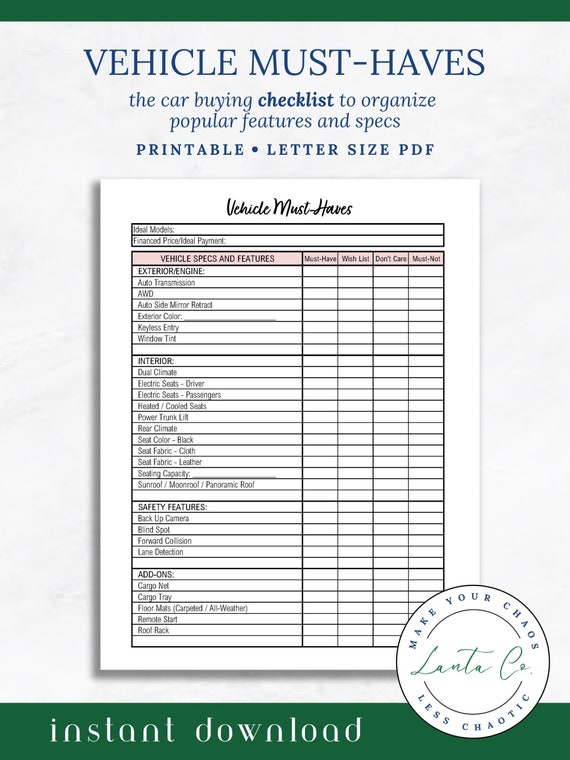CGKY News Hub
Your go-to source for the latest insights and trends.
Steering Clear of Buyer’s Remorse
Avoid costly mistakes and learn how to make confident purchases without the regret. Discover tips to steer clear of buyer's remorse!
5 Tips to Avoid Buyer’s Remorse: Making Confident Purchase Decisions
Making confident purchase decisions is crucial to avoiding buyer’s remorse. One effective strategy is to research your options thoroughly before making a decision. Use resources like Consumer Reports to compare products and read reviews. Additionally, consider creating a pros and cons list to visualize the potential benefits and drawbacks of the item you’re considering. This will help ensure you're not swayed by impulse and will focus on making an informed choice.
Another tip is to establish a budget before you start shopping. Determine how much you can afford to spend without stretching your finances, and stick to it. By setting a budget, you can reduce the likelihood of overspending and experiencing regret later. Additionally, avoid shopping when you’re feeling emotional or stressed, as this can lead to impulsive purchases. Instead, approach shopping with a clear mind and a solid plan. Visit Smart About Money for tools to help you manage your finances effectively.

Understanding Buyer’s Remorse: Common Triggers and How to Overcome Them
Buyer’s remorse is a common phenomenon that can occur after making a purchase, leading to feelings of regret or doubt. Understanding the triggers of this feeling is crucial for consumers and businesses alike. Common triggers include impulse buying, where consumers make hasty decisions without fully considering the implications, and comparison shopping, which can lead to second-guessing purchases. Additionally, the pressure of social influence, whether from friends, family, or social media, can exacerbate feelings of remorse when consumers feel they’ve made a subpar choice.
To mitigate the effects of buyer’s remorse, it’s important to adopt strategies that promote mindful purchasing. Start by creating a decision-making checklist that includes evaluating your needs versus wants, assessing budget constraints, and conducting thorough research. Emphasizing the importance of post-purchase reflection can also help individuals solidify their choices and reduce the likelihood of regret. Furthermore, engaging in conversations with trusted advisors before making large purchases can provide valuable perspectives to bolster confidence and decrease the chances of experiencing buyer’s remorse.
Is Buyer’s Remorse Holding You Back? Strategies to Make Sound Purchases
Experiencing buyer’s remorse can significantly hinder your ability to make confident purchasing decisions. It's an emotion that many people face after acquiring a product or service, often leading to feelings of doubt and anxiety about whether the purchase was worth it. To combat this, one effective strategy is to conduct thorough research before making any significant purchase. Utilize resources like Consumer Reports to compare products, read reviews, and understand the long-term benefits and drawbacks. Additionally, creating a pros and cons list can help clarify your thoughts and reinforce your confidence in the decision you're about to make.
Another practical approach to mitigating buyer’s remorse is to establish a budget prior to shopping. This allows you to set clear financial boundaries, ensuring that you only consider options that fit within your means. You might also consider implementing a waiting period—a practice where you hold off on a purchase for a set time, typically 24 to 48 hours. This tactic offers a buffer that can prevent impulsive decisions and give you time to reassess your needs. For further insights into this technique, check out Forbes.